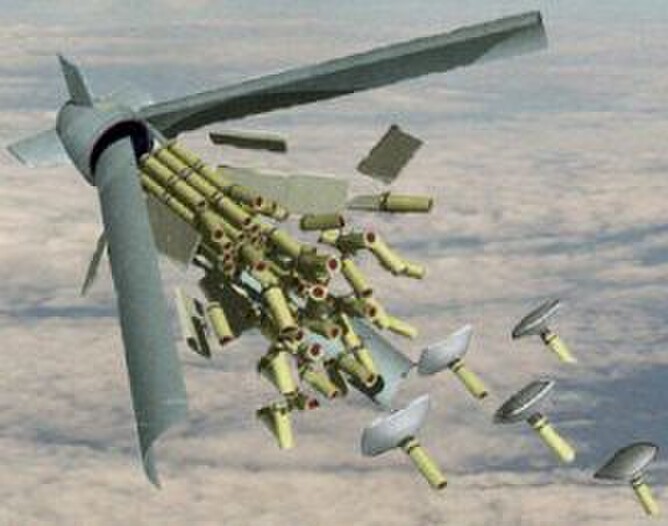Last week it was brought to the media’s attention that a number of the KiwiSaver Default funds had investments in companies that are blacklisted by the NZ Superannuation Fund. These can range from firms that make cluster bombs, mines, or that make profits from the sale of tobacco.
For most of these providers, it appears that this is because they are using a low cost passive approach to investing to keep the fees down for investors, while still providing diversification and getting a good return. However, one of the issues of using this approach is the lack of control over the underlying investments.
Radio New Zealand noted that: ASB, Westpac, and Grosvenor invested in cluster bombs, mines, nuclear arms and tobacco companies through the Australian fund manager Vanguard. The Vanguard International Share Index Fund tracks another global index made up of the world's biggest companies.
This has caused some angst for some KiwiSaver investors, and a number of KiwiSaver providers are taking action to reinforce with their sub managers that they do not want these kinds of investments in their portfolios.
Each news report has different information about which fund is holding what so it is difficult to get clarity.
So what can you do about this if you are concerned about where these investments are held? You can ensure that your fund manager is trying to do something to limit or eliminate any exposure.
We have printed the statements of a number of KiwiSaver providers below for your reference.
Alternatively you can choose an approach where there is an ethical or sustainable bias to the investment strategy. Within our clients diversified non KiwiSaver portfolios we are able to access managers who have this philosophy and where there is a lot of transparency in relation to the underlying investment. However, most of these fund managers do not offer KiwiSaver solutions.
Referring to the Morningstar Research as at 30/06/2016, there are several ‘ethical or sustainable’ funds available to KiwiSaver investors.
However, as you will see, these funds are very small and have significantly underperformed their peers. Therefore, making this decision is likely to lead to a trade off of lower investment returns – or even negative investment returns when the rest of the KiwiSaver providers have positive returns.
KiwiSaver Balanced Fund returns to 30/06/2016, After Fees, Before Tax THIS INFORMATION
DOES NOT CONSTITUTE ADVICE
| Balanced PIE KiwiSaver | 12 month return to 30/06/2016 | 1 year Ranking to 30/06/2016 (previous ranking) | 36 month return (per annum) to 30/06/2016 | 3 year Ranking to 30/06/2016 | 60 month return (pa)to 30/06/2016 | 5 year Ranking to 30/06/2016 | Fund Size ($million) |
| Milford Balanced Fund | 6.6 | 1 (3) | 11.5 | 1 (1) | 12.2 | 1 (1) | 95.5 |
| Aon Russell Lifepoints Balanced | 4.3 | 9 (4) | 9.8 | 2 (2) | 9.9 | 2 (2) | 74.4 |
| ANZ OneAnswer KiwiSaver Balanced Fund | 4.7 | 5 (8) | 9.5 | 3 (5) | 9.3 | 3 (3) | 407.10 |
| ANZ KiwiSaver Balanced Fund | 4.6 | 6 (9) | 9.4 | 5 (6) | 9.2 | 4 (4) | 1369.30 |
| ASB Scheme KS Balanced Fund | 5.2 | 4 (5) | 9.3 | 6 (4) | 8.7 | 5 (7) | 814.60 |
| Mercer Balanced Fund | 4.5
| 7 (10) | 9.5 | 4 (3) | 8.4 | 6 (5) | 248.5 |
| Westpac KiwiSaver Balanced Fund | 4.0 | 10 (6) | 9.1 | 8 (7) | 8.3 | 7 (6) | 962.1 |
| Fisher/Tower Balanced | 5.3 | 3 (7) | 8.6 | 10 (10) | 7.9 | 8 (9) | 520.5 |
| KiwiWealth Balanced Fund (ex Gareth Morgan)* | -3.1 | 14 (14) | 7.7 | 12 (8) | 7.9 | 9 (8) | 1064.30 |
| Forsyth Barr Balanced Fund | 2.1 | 12 (1) | 7.9 | 11 (9) | 7.0 | 10 (10) | 15.3 |
| AMP KiwiSaver Balanced Fund | 1.3 | 13 (13) | 6.8 | 14 (13) | 7.0 | 11 (11) | 704.90 |
| Grosvenor Balanced Fund | 3.1 | 11 (11) | 7.3 | 13 (12) | 6.6 | 12 (12) | 320.7 |
| Generate ½ ½ Conservative and Growth | 5.9 | 2 (2) | 9.2 | 7 (-) | - | - | |
| BNZ Balanced | 4.4 | 8 (12) | 8.7 | 9 (11) | - | - | 151.50 |
| Generate Conservative Fund | 8.8 | 8.2 | 42.4 | ||||
| Generate Growth Fund | 3.0 | 10.2 | 77.1 | ||||
| ETHICAL ANZ OneAnswer Sustainable Growth Fund | -10.5 | 7.5 | 7.3 | 4.3 | |||
| ETHICAL Grosvenor Socially Responsible Fund | 1.8 | 7.7 | 7.0 | 19.0 |
Information provided by Morningstar Research. Total Expense Ratio doesn’t include any dollar based account fees.
Statements from KiwiSaver Providers that Moneyworks clients hold (in alphabetical order)
ANZ Investments
• Our KiwiSaver members have a range of choices - the ANZ Default KiwiSaver scheme, the ANZ KiwiSaver Scheme or they can choose to invest in our OneAnswer KiwiSaver Scheme’s Sustainable International Share Fund.
• The Sustainable International Share Fund invests mainly in a diversified portfolio of companies that are pursuing a sustainable development policy and combining respect for social principles (such as human rights, non-discrimination and the issue of child labour) and environmental principles.
• Like almost every KiwiSaver provider in New Zealand, our KiwiSaver funds are invested in companies that make up the MSCI World Index, an internationally recognised global equity index. These companies operate legally and are large conglomerates, with a range of different business units. We and our managers continually monitor all the companies we invest in.
• Our KiwiSaver schemes use external managers who are all signatories to the United Nations Principles on Responsible Investing. They take ESG (environmental, social, governance) factors into consideration when selecting and monitoring the ongoing performance of companies.
• We and our managers, monitor the activities and performance of these companies as part of our ongoing monitoring of all securities.
• We have previously asked for companies to be excluded from our portfolios and would do so again if necessary.
• As a government entity, the New Zealand Super Fund has a different investment approach which means it excludes a number of companies that local KiwiSaver managers include in their portfolios.
Fisher Funds
This morning the ethical investing question has once again reared its head in the media with Amnesty International reporting that a number of default KiwiSaver providers are investing in munitions companies.
In short, Fisher Funds actively avoid any investment in tobacco and arms manufacturing businesses. This is a blanket rule across all of our investment strategies. However, it can prove challenging to define exactly which companies to screen out in the arms manufacture business given the long supply chain to this industry. What we do is focus on those end of chain manufacturers who generate the majority of their revenues from the supply of arms.
As you may appreciate ethical investing is a very complex area given that we manage the savings of over 250,000 New Zealanders who have diverse views on a range of social, ethical and political issues. The approach we take to these issues will not please everyone all of the time.
Our approach to date has been to avoid those areas that prove to be repugnant to the majority of our clients but to otherwise avoid making less clear ethical judgements. Allied with this we seek to invest in businesses we regard as commercially sustainable and that will generate attractive long term returns for our investors.
In our company research processes we focus on sustainability from an economic perspective. By definition this includes cognisance of the social environment in which the business operates. This is important given that socially unacceptable practices, for instance employment of child labour, may negatively influence the long run franchise of a business and prove to be a poor investment. To be clear, though, this is not an ethical judgement rather a judgement about what drives the long term profit outlook for a business.
What we are finding is that company management are increasingly aware of environmental, social and governance issues and factor these into their decision making as they become more important to their shareholders, employees and the wider community. We find that consistently good companies seldom achieve that status without satisfying their responsibilities to their employees, clients, community and environment.
Generate KiwiSaver Scheme
The Generate Funds do not invest directly in manufacturers of cluster bombs, mines or nuclear arms.
Of course when doing our due diligence we avoid unethical investments, however we cannot label ourselves as an “100% ethical fund” because we invest in underlying fund managers and underlying companies. For example, although we screen the investments and investing style of our underlying fund managers we cannot control or monitor what they do 100% of the time. If we were to market a fund as “ethical” and then one of our underlying funds invested in something against our policy we would subsequently be liable for misrepresentation.
An example is T. Rowe Price have investments in Boeing, which has a defence division.
Another problem is one person’s definition of ethical differs from another - it’s not always clear cut.
In an article Duncan Paterson, when he was president of the Responsible Investment Association Australasia (RIAA) (one of eight organisations worldwide that specialises in this area), said the subjective nature of what is good, bad and ugly in the investment space is a conundrum that has vexed the industry.
"If you line up six people and say what's a high ethical standard? You'll get six different answers,'' said Paterson.
We, and the fund managers we use, are keen to build and maintain a great reputation - and targeting unethical investment would obviously detract from that – regardless of your definition.
Grosvenor KiwiSaver Scheme
1) Our Default Saver fund has a very small and indirect exposure to these investments through the Vanguard Index fund that we (and many other KiwiSaver managers) use to cost-effectively invest in global stock markets.
2) We support Responsible Investing principles and our Socially Responsible Investment (SRI) funds DO NOT invest in those companies identified as being involved in the manufacture of cluster bombs and land mines. Clients are able to switch into these at no cost.
3) We are concerned about our investors having exposure to these types of companies, albeit very small, and are therefore actively working with Vanguard to come up with a replacement global index fund that excludes these investments. If they are unable to do this within a reasonable time frame (within 12 months), we will be switching our global share investments into the same underlying exchange traded index fund that we use in our SRI funds (this one tracks the MSCI World SRI Index).
If you have any thoughts or opinions that you would like to share, visit us at our Twitter, Facebook or Linked In pages, and comment.
For more blog entries that you might be interested in:
Positive ‘tweaks’ to KiwiSaver ‘second chance’ first home buyer rules
Changing rules on UK pension withdrawals in New Zealand
By Carey Church






